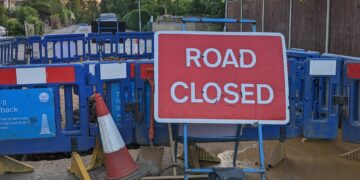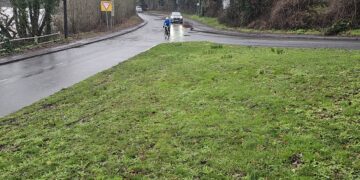
The vaccination programme in the UK is going very well.
Those of us with elderly relatives can see that the programme is reaching the right people and is giving the community as a whole a valuable commodity: that of hope.
I believe that the Government should be commended for its decisive and important action here. The roll-out has been done without huge fanfare and has been a great success to date.
It is far better to quietly go about a process, and perform well at it, rather than announce say a ‘world-beating’ Track and Trace system, without any evidence of its supposed excellence. There is much to be said for under-promising and over-delivering.
That may prove to be one of the key lessons of our approach to future crises.
The high penetration of vaccination compared with most of our immediate neighbours is being reasonably presented as one of the benefits of Brexit, where we have the agility to make quicker decisions.
My day job involves importing goods from European suppliers. Throughout my working life, we have ordered goods and they have arrived.
Last year in preparation for Brexit, we were told to ensure that we had a Customs Agent and an EORI number, so that we could deal with the forthcoming changes in doing business.
When changes occur, a few teething problems are inevitable, and unsurprisingly there have been occasional news stories about the challenges, in particular around the fishing industry.
In the real world, the red tape, form filling and archaic manual processes around Commodity Codes and countries of origin necessitated by the changes imposed around Customs Declarations are simply overwhelming.
Business contacts talk of only 10% of their deliveries arriving, of continental hauliers doing anything to avoid having to come to the UK for fear of being delayed, and for example consolidated loads from say 20 different suppliers being delayed because of one line on a piece of paper being incorrectly completed. There is a massive problem occurring beneath the radar, and I am not sure when this will become a significant news story.
I have a book, Baedeker’s Touring Guide to France, which was published in 1961. I have always intended to use it to plan a holiday. There are little maps, words in very small print suggesting scenic routes and rural stopovers.
Sixty years on, it would be enjoyable to do a tour of France using the sat nav technology we have today, the autoroutes and road signs, with the book as a source of quirky ideas.
Unfortunately, the new Customs processes we are being forced to follow feel like the business equivalent of using a 1961 touring guide. An interesting curiosity, but not a sensible permanent solution.
It does feel as though there will need to be some intervention, otherwise real damage will be done
to the economy, at a time when we can least afford it.
I once took a call from a polling company asking if I felt there was too much red tape in business.
“Yes, of course,” I confidently asserted. The caller asked me what red tape I would like to get rid of.
Needless to say, I was stumped, as I thought about our first aid processes, our fire emergency extinguishers, our waste disposal, our welfare facilities etc. Most of the ‘red tape’ is for a reason and is worthy of support.
This does not mean we actually want any more. What an irony if the main visible effect of Brexit on business is an avalanche of yet more red tape.












































